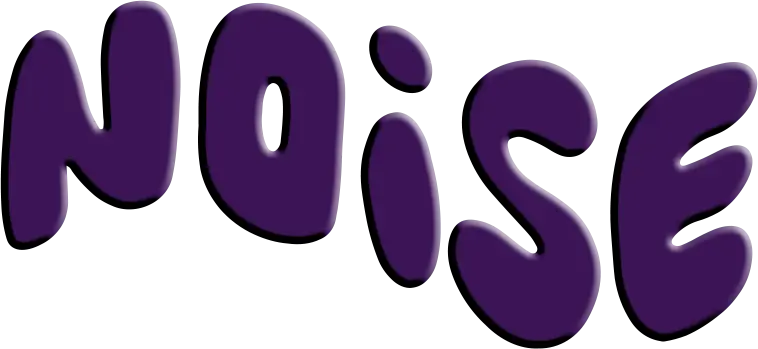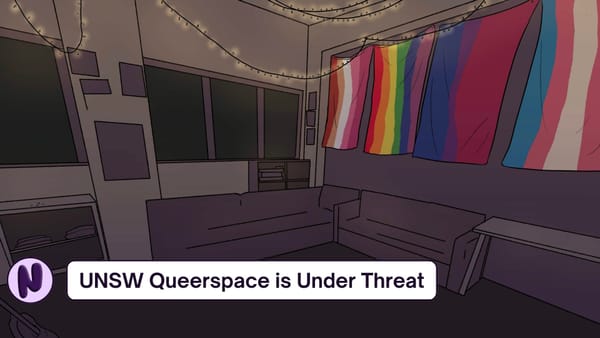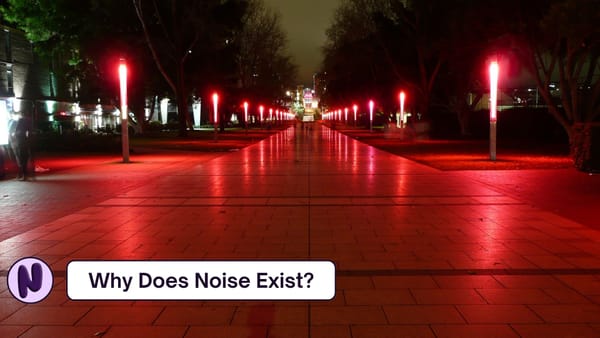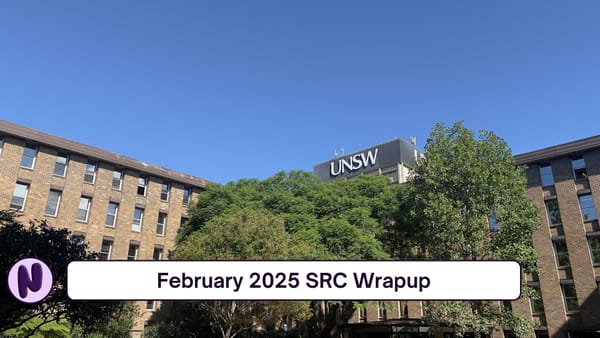Arc's Student Writers Gain Freedoms, Lose Rights
Greater press freedom for student writers in a quietly released overhaul of Tharunka’s Charter has been undermined by a single drastic rule change.
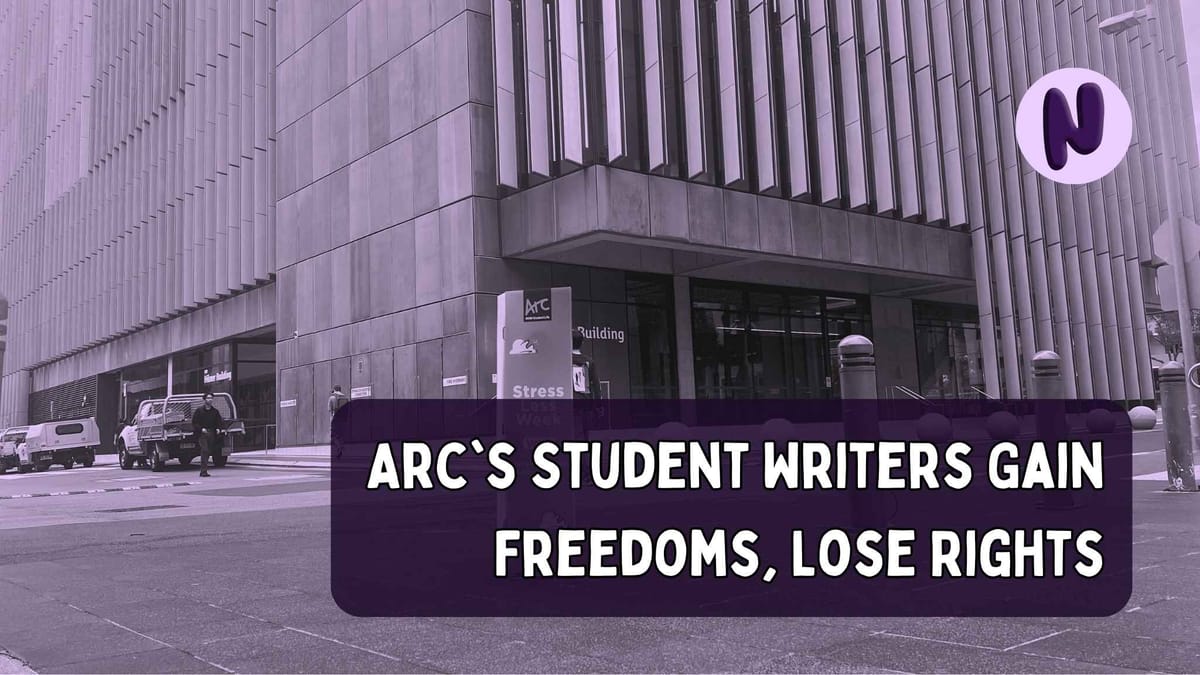
Amid a myriad of announcements to begin the term, a new-look Charter for the paper formerly known as Tharunka was quietly released to the public for the first time on Friday May 31st.
Approved at a meeting of the Arc Board the Wednesday prior, the document keeps those in charge of drafting or approving the changes private, as previous ones do. Under its new rules, Arc’s Marketing Department is no longer explicitly mentioned, and appears to have lost powers under the Charter to censor reporting to protect its own reputation, although a subsequent clause subjects all articles to ‘fact-checking’ by Arc’s lawyers.
Crucially, the approvals mechanisms now includes an appeal and dispute process where ‘genuine efforts to negotiate’ fail, giving the Chair of the Arc Board the final say over the potential censorship of news reporting.
The Chair is the only member of the Arc Board who is allowed to speak to media under Arc’s media policy, meaning that should the Chair uphold the censorship of student journalism, an explanation as to why may be sourced in a public statement.
Most concerningly, however, Article 23 states that “Once published, all material developed in the context of the [name to be confirmed] publication is the copyright and intellectual property of the Publisher (Arc).”
Newly introduced, the impetus behind the construction or inclusion of this rule is unclear, but if enforceable, students who promote their work for the publication in personal portfolios would be breaking the law. It would also permit Arc to reproduce, distribute, and appropriate student work without permission and for their own gain.
Under NSW law, people who contribute creative work to a company on a volunteer or contract basis (i.e. non-employees) retain their own copyright and IP rights to their work, posing questions to the legal enforceability of this rule in the Charter.
Noise discourages student writers or artists from giving any person or organisation rights to your own IP unless fairly and generously compensated.
Article 34 states that “The Publisher (Arc as an entity) may withhold content from publishing, this will be utilised primarily for the safety and wellbeing of students or staff in the spirit of harm minimisation.”
It is not stated who within Arc would have the authority to trigger this rule. However, the document states that the ‘Responsible Officer’ to this charter would be the Arc Media and Publications Coordinator, PhD student and former UNSWeetened Coordinator Chloe McFadden, who is employed within Arc’s marketing department.
Further, these changes do not affect reporting on Arc-governed elections, which still ‘regardless of its nature’ must be reviewed by an independent Returning Officer (a role almost always filled by Arc employees) and can be censored without a reason being given.
Additionally, coverage can only be approved between 9am and 8pm on weekdays, with most Arc employees off the clock after business hours and unavailable to review content.
The publication’s own staff appears to be afforded more power to control its production, with section 27 alluding to a ‘4 out of 5 consensus process’ to greenlight content for publishing. The specific rules are supposedly stipulated in an Operational Plan, a document redrafted yearly by newly appointed editorial staff which outlines visions, perspectives and schedules for their year in charge, but at this time is not yet publicly available.
The Charter defines the Operational Plan as a ‘handover and guide for interpreting the Charter … maintained by (Arc)’. Questions are to be raised about whether the Plan’s interpretation of its regulations will be Arc’s or the publication’s and, if they are Arc’s, what those interpretations will be.
Concerningly, section 39 states that a breach of the Charter by the editorial staff (but not by Arc) may warrant a public apology for the transgression. Should Arc continue to interpret reporting critical of itself as in breach of these regulations, this rule may allow an Arc employee to force students to make public statements apologising for criticising their initiatives, whether or not the criticisms had any basis.
Among the most significant changes, the paid student editorial team has expanded from four to five members, with the addition of a ‘Podcast Editor’ demonstrating the publication’s interest in the industry’s wider shift to digital formats.
Staff will now be paid fortnightly, rather than on ten disparate occasions throughout the year, sometimes months apart; and are now appointed explicitly to work for 33 weeks per year and no more than 20 hours in one week, with an average of 10. This is a much less open-ended description of workplace expectations than previously stipulated.
The former title of Managing Editor is now called ‘Administrator’, tasked with ‘facilitating day-to-day communications … with external stakeholders’ as well as managing the publication’s finances. With the publication formerly operating hierarchically under the authority of the Managing Editor, this change moves seemingly away from the ‘boss and underlings’ structure previously and controversially in place since the positions ceased to be elected in 2015.
While previous charters detailed the payment rates of editorial staff, the new one does not, and it is unclear if this increase in paid staff will mean an increase in gross expenditure on the publication, or if staff will simply be paid less than previously.
With the launch of Tharunka's 70th anniversary publication and celebrations happening tonight, the new publication is now taking expressions of interest from volunteer writers and paid executives.
More to come.
